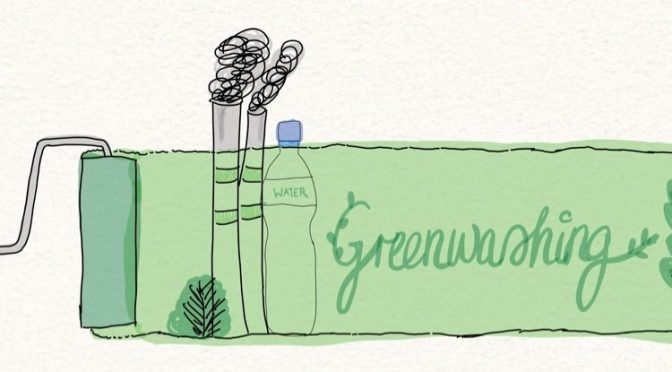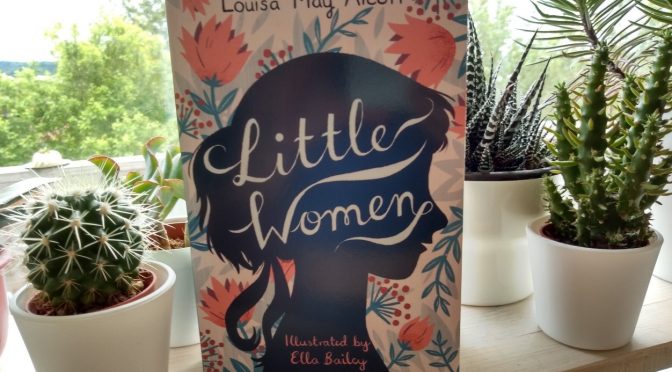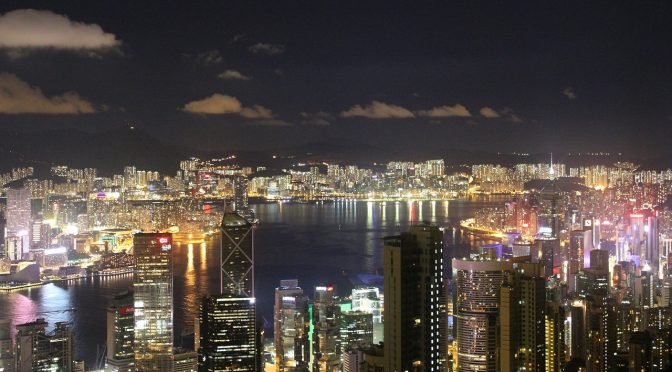Organic. 100% recycled. Recyclable. Natural. Certified green. When you buy this item, 1$ will be donated to children in need. Think for yourself: Do you feel better when buying an item which is labelled as environmental-friendly or sustainable?
There are many words that could be used to describe something as eco-friendly or sustainable. When reading these, people mostly feel good for supporting a company that cares about sustainability, animals and human rights. However, most of these companies only use these for tricking people into buying their things – while not caring a single bit about problems like environmental pollution, child labour and so on. This problem is called greenwashing.
What is greenwashing?
The Oxford Learner’s Dictionary defines greenwashing as “activities by a company or an organization that are intended to make people think that it is concerned about the environment, even if its real business actually harms the environment”. The term is based on the word “white-wash”, which describes that somebody is trying to hide unpleasant facts about something and trying to make it seem better than it is. As protecting the environment and living a more sustainable life is a current and “trendy” topic in times of climate change and Fridays For Future, many companies try to use this for making profit and selling more of their products. For example, a company sells items packed in plastic but claims that they have a new campaign which reduced the plastic by 15%. So why don’t they ban it entirely and search for a completely different type of packaging which would be a 100% less plastic? Probably because it is cheaper and costumers don’t really think that much into it, as the item is “more” sustainable than others or the older version of the same product.
How do I recognize greenwashing?
There are some possible ways to recognize greenwashed products. Above all, trust your instincts. Also check the whole product, what it’s made of and how it can be disposed of afterwards. When seeing a green label, check why it’s claimed to be green. You could even go to the website and read through it. Do they give a lot of information about their goals and marketing or is it really vague and unspecific? Is there a lot of ambiguity? Research the company on other websites, which are not associated with it and check for hints. If you want to go into it even more, contact the company and directly ask them your questions. If they don’t respond or talk around your questions, it might be greenwashing. Look for certain certifications and seals on the product. Research them and make sure they are from third parties which are not influenced by the company.
How can I avoid greenwashing and take action against it?
You can avoid greenwashing by saying no. Don’t buy the item if you don’t want to support this company. If you have the choice, search for the same thing by another brand and buy it instead (if it isn’t also affected by greenwashing). Also spread the word. Less demand will eventually get the product from the market. If you want to go even further, contact the company and state your concerns. They might have done it unintentionally or are open for suggestions to improve their marketing. There is also the possibility to report it to the consumer advice centre (Verbraucherzentrale). They check the item or advertisement and may even go after it judicially. Now you might think “Why should I do all this if it’s just a marketing strategy?”. The problem about it is that you lose sight of the bigger problem that is hidden behind the “green marketing”. At its worst it isn’t just a marketing trick but rather an attempt to hide the bad effects the companies have on the environment. This is why everybody should take a look behind the green.
author: Veronika Grashey



